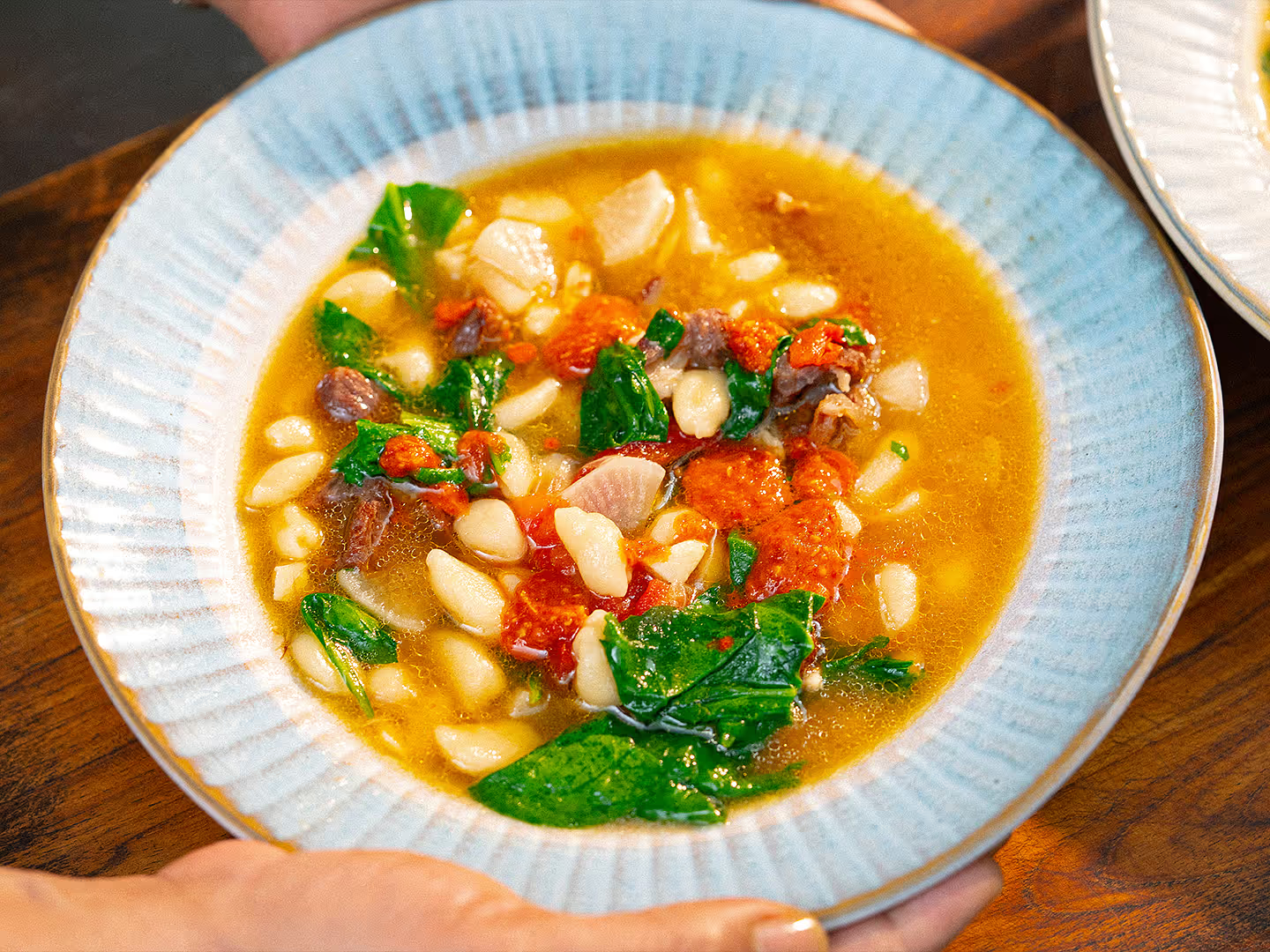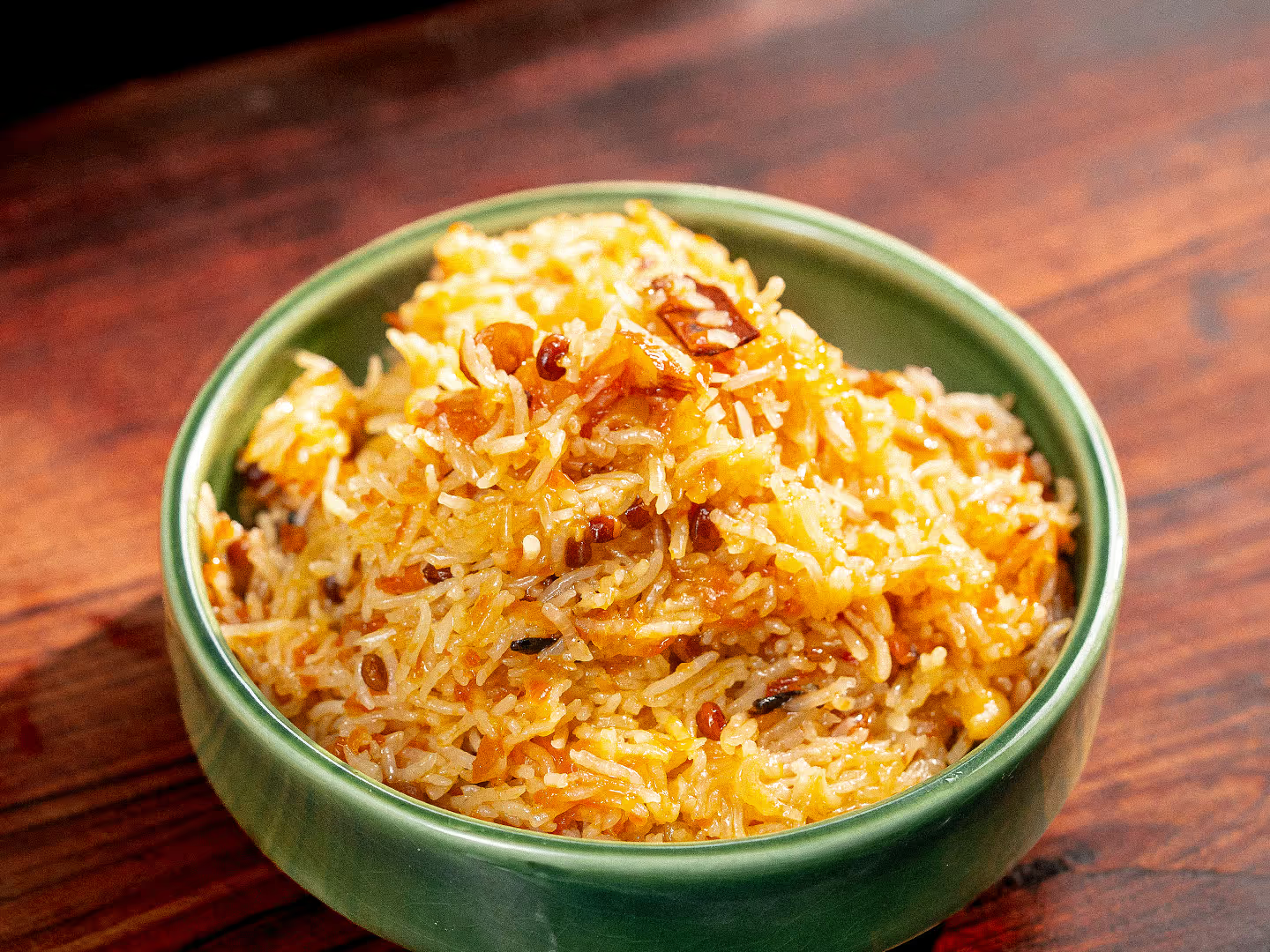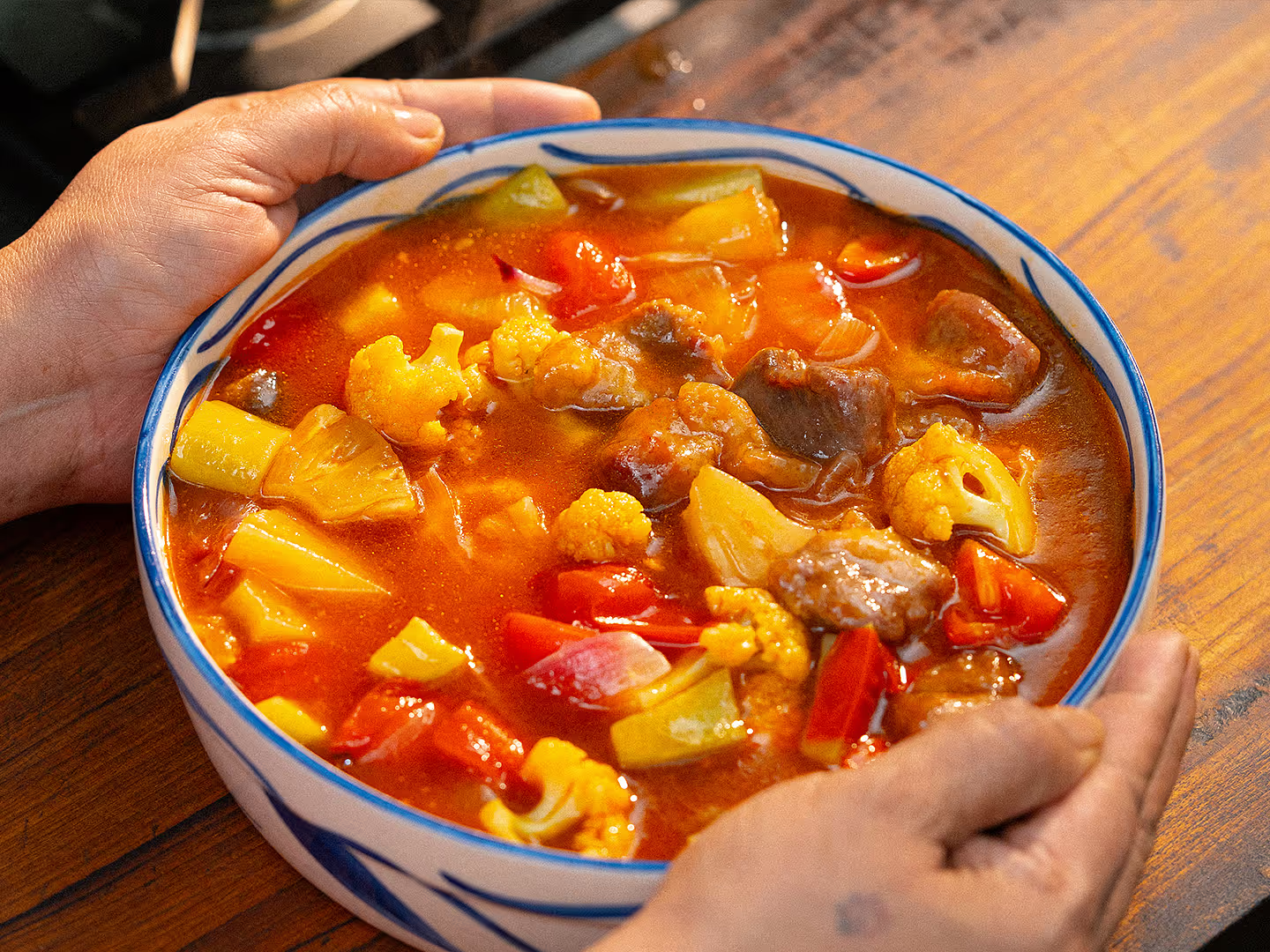Potoler Khosha Bata
A spicy, fudgy mash made of pointed gourd (potol) peels.
- Cooking time60 mins
- Calories90kcal
In spite of being one of the most fertile regions in the world, from the 18th through 20th centuries Bengal saw devastating famines where millions perished. Many of these famines were manmade, meaning they were not caused by draughts or crop failures, but by the mismanagement and apathy of the colonial overlords at the time, the British. This has left a lasting impact on how Bengalis eat.
This recipe, which uses just the peels of potol A.K.A pointed gourd, is one example of the frugal nature of Bengali eating. While the potol itself can be used in another recipe, the peels make for a fantastic appetiser. This same technique is applied to many other vegetable peels as well as to vegetables which are somewhat past their prime. What must have been born out of cruel compulsion has been turned into a celebration by our foremothers.
Potol'er khosa bata, despite its dull look, is spicy and potent; just a small spoon of this stuff is mixed with a helping of boiled rice and relished. It is addictively good.
We've served potol'er khosha bata with the beautifully fragrant Karpurkanti rice from Amar Khamar.
Frequently Asked Questions
Books in this recipe
Ingredients
- 215 g potol peels (from ~750 g potol)
- 6 g garlic
- 9 g green chillies
- 50 g mustard oil
- 2 dried red chillies
- ½ tsp kaalo jeere (nigella seeds)
- 7 g salt
- 10 g sugar
- ¼ tsp turmeric
Method
- Peel the potol, and boil the peels for about 8 mins until tender. You can reserve the potol to make potol posto or potoler tel jhol.
- Transfer them to a grinder jar along with garlic and green chillies, and blitz to a paste.
- Heat mustard oil in a kadai. Temper with dried red chillies and kaalo jeere.
- Add the potol paste. Add salt, turmeric and sugar.
- Keep cooking until the paste reduces down and darkens in colour. During this process, spread it out in a thin layer so the the part in contact with the pan caramelised. Repeat this process until the whole mixture is well fried.
- We'e serve potoler khosha bata with the fragrant, aatop (non-parboiled) rice called Karpurkanti from Amar Khamar, and some crisp kalai'er dal'er bori on the side!





























